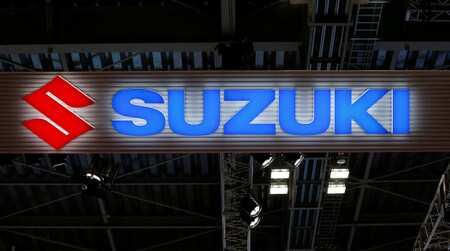
TOKYO: Suzuki Motor Corp on Friday forecast a 1.7% rise in profit this year, anticipating limited growth due to an expected sales tax rise in Japan as well as uncertainty in business conditions in its biggest market, India.
Japan’s fourth-largest automaker expects operating profit of 330 billion yen ($3.01 billion) in the year through March 2020, lower than the 362.2 billion yen average of 22 analyst estimates compiled by Refinitiv.
It anticipates currency volatility, particularly the rupee and euro, to also weigh on profit growth, even as it expects overall global vehicle sales to hit record highs.
In the year just ended, profit fell 13.3% to 324.4 billion yen from the previous year’s record high of 374.2 billion yen.
The compact car maker took a hit from a weaker rupee, while costs related to a domestic vehicle recall stemming from improper vehicle inspections also weighed on its bottom line.
Suzuki snapped a three-year run of record profit due in part to slowing sales in India, its biggest market, and costs related to recalling around 2 million vehicles to re-do inspections for the Japanese market, which had been completed by uncertified inspectors.
This year, Suzuki is bracing for subdued growth in India – where roughly one in every two cars sold fall under the automaker’s brand – due to uncertain fuel prices and the onset of stricter emission norms.
Growing use of app-based cab services such as from Ola and Uber Technologies Inc, tighter credit and market uncertainty ahead of India’s general election have all weighed on the auto industry, hurting sales of private cars.
Still, it expects to sell a record 3.34 million vehicles globally in the year to March, adding to record sales of 3.33 million units in the year just ended.
Easing profit growth could hamper Suzuki’s ability to invest in and develop lower-emissions vehicles and on-demand transportation services necessary to survive the technological upheaval currently underway in the global auto industry.
The automaker has long acknowledged that it cannot shoulder the costs of developing electric vehicles and self-driving cars on its own, and has turned to Toyota Motor Corp to supply Suzuki vehicles with its gasoline hybrid systems.